| All Artists: Highwaymen Title: Road Goes on Forever Members Wishing: 0 Total Copies: 0 Label: Capitol Original Release Date: 4/4/1995 Release Date: 4/4/1995 Genres: Country, Pop Styles: Outlaw Country, Classic Country Number of Discs: 1 SwapaCD Credits: 1 UPCs: 724382809128, 0724347450709, 724382809142 |
Search - Highwaymen :: Road Goes on Forever
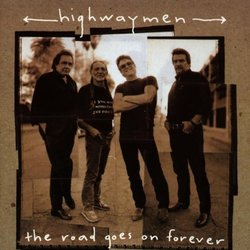 | Highwaymen Road Goes on Forever Genres: Country, Pop
Don Was, the producer who transformed Bonnie Raitt from cult hero to pop star, tried to jump-start the stalled careers of Willie Nelson and Waylon Jennings by producing their recent albums, Across the Borderline and Waymor... more » |
Larger Image |
CD DetailsSynopsis
Amazon.com Don Was, the producer who transformed Bonnie Raitt from cult hero to pop star, tried to jump-start the stalled careers of Willie Nelson and Waylon Jennings by producing their recent albums, Across the Borderline and Waymore's Blues (Part II), respectively. This resulted in two artistic triumphs but no hits. That didn't deter Nelson and Jennings from hiring Was to produce their album with Johnny Cash and Kris Kristofferson as the Highwaymen. The Road Goes on Forever is easily the best of the three Highwaymen albums, even if changing radio tastes will probably doom it to the poorest sales of the three. The two earlier releases, 1985's Highwaymen and 1990's Highwaymen 2, were thrown together as if the sheer starpower of the four singers could carry the project. Both albums had their exciting moments when everything clicked but both also had a lot of filler. By contrast, Was approached the new recording as if every song and every arrangement had to be good enough to be a single. He picked one obscure but terrific composition from each of the four singers and supplemented them with equally strong material from four of Texas's best songwriters--Steve Earle, Billy Joe Shaver, Stephen Bruton, and Robert Earl Keen Jr. Nelson's harmonica ace Mickey Raphael and Kristofferson's singing buddy Billy Swan are joined by top L.A. session pros like keyboardist Benmont Tench and drummer Kenny Aronoff to create a sound that has the twangy picking of old-fashioned country and the fat bottom of modern pop. The result is an album with everything: first-rate material, grade-A playing, and inimitable singing. The thread that ties Nelson, Jennings, Cash, and Kristofferson together is the crustiness of their voices (a honey-voiced singer like George Jones or Don Gibson would seem out of place in this crowd); when they sing Shaver's "(I'm Going To) Live Forever," they sound as if they're more than halfway there. The Highwaymen are so naturally hard-bitten and world-weary that they can slip a little sentiment into a song without spoiling it. They use this to great advantage on the album's two great outlaw songs, Earle's "The Devil's Right Hand" and Keen's title tune; the gruff tales of violence lead up to a sobering admission of the price paid for such a life. That same gruffness allows the Highwaymen to sing two religious meditations, Jennings's "I Do Believe" and Cash's "Death and Hell," without once sounding sanctimonious. --Geoffrey Himes Similarly Requested CDs
|
CD ReviewsThe best of the 3, in my opinion jay_cav | Waco, TX USA | 04/26/2000 (4 out of 5 stars) "I like this album. It is really over-produced, though. The song selection was very good - and the Highwaymen seem really energized on this record. The only thing that keeps me from giving it 5 stars...is the production. Too often there is so much going on musically in the song that I can't hear Waylon or Willie - and I get distracted by whatever sounds Don Was has thrown in there. As far as I am concerned, when you get this kind of talent together - you need to just get out of the way." A great Album Christian Jorgensen | Denmark | 10/15/2001 (5 out of 5 stars) "The old dogs of country band together again for this 3rd album, calling themself The Highwaymen. The album is in my opinion full of highlights. The album is full of great country-anthems. From the title track over the beautiful I Do Believe and over Cash' dark and brooding Death and Hell. I really think that the old guys are supplementing each other well, and they sound great when they are together. It is like they take the best from each of them and add it." Last of three great albums Peter Durward Harris | Leicester England | 04/13/2005 (5 out of 5 stars) "Johnny Cash, Willie Nelson, Waylon Jennings and Kris Kristofferson came together as the Highwaymen in the mid-eighties to record an album and tour together. It proved so successful that they eventually recorded two more, this being the last of the trilogy. It is similar in style to the first two.
Most of the songs here are covers, often of songs that one or other of the members had written recorded as a solo artist. The set opens with a Steve Earle song, The devil's right hand, which gets the album off to a great start. I do believe (written by Waylon), End of understanding (written by Willie), Death and Hell (written by Johnny and June) and Here comes that rainbow again (written by Kris) ensure that all the members of the Highwaymen get a share of the songwriting royalties as well as the recording royalties. Elvis once recorded True love travels on a gravel ro0ad (a Dallas Frazier song), but it's not one of his famous recordings. I like his version but I also like the Highwaymen's version. Billie Joe Shaver, who provided Waylon with most of the songs for one of his classic albums (Honky tonk heroes), wrote Live forever. Kevin Welch, who established himself as a songwriter long before making it as a singer, wrote Everyone gets crazy. Stephen Bruton wrote one song (Waiting for a long time) and co-wrote another (It is what it is). Robert Earl Keen, who eventually got the chance to record his own music, contributed the title track. There are no real surprises here - you know who Johnny, Willie, Waylon and Kris are, you know the kind of music they record and you'll find it here. All four singers have recorded many more important albums than this but if you've already got their important music and still want more, you'll enjoy this album." |

 Track Listings (11) - Disc #1
Track Listings (11) - Disc #1
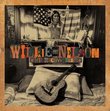
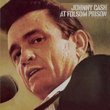
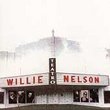
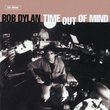
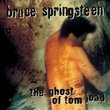
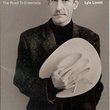
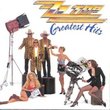
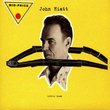
![Waylon Jennings - Greatest Hits [RCA]](https://nationalbookswap.com/cd//m/27/2727/92727.jpg)